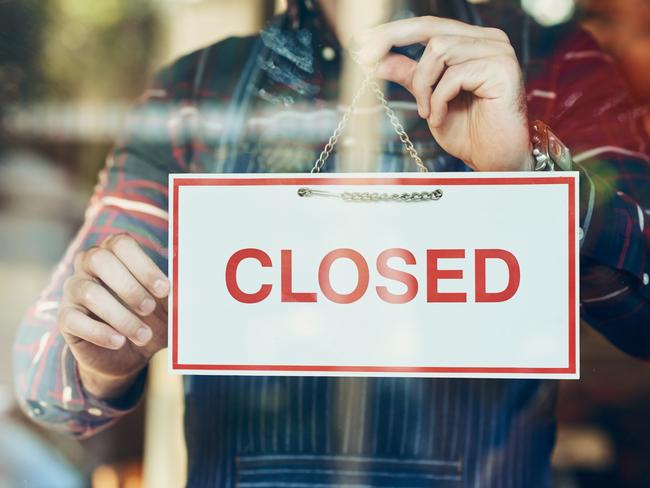Personal business insolvencies on the rise with Trumponomics to have an effect in 2025
The economic policies of US president-elect Donald Trump could spark a rise in personal business-related insolvencies.

Business
Don't miss out on the headlines from Business. Followed categories will be added to My News.
Geopolitical uncertainty – particularly “Trumponomics” – could trigger a surge in personal insolvencies as cost-of-living increases continue to bite, insolvency and business turnaround specialist Jirsch Sutherland has warned.
According to September quarter personal insolvency figures from the Australian Financial Security Authority (AFSA) more than a quarter (27.9 per cent) were business-related, compared to 25.2 per cent for the same period in 2023.

However, Jirsch Sutherland partner Chris Baskerville said the level of personal insolvencies was still well below historical averages.
“Prior to key events including the GFC and the Hayne royal commission, personal insolvencies were running at around 25,000-30,000 a year,” he said.
“But since Covid they have dropped to around 10,000 a year, which is borne out by AFSA’s 10-year time series.
“Regardless, we’ll likely continue to see an uptick as micro and macroeconomic factors continue to play out.”
A potential major factor in a surge in personal insolvencies was the impact of so-called Trumponomics – US president-elect Donald Trump’s economic agenda, principles and policies.
This week Mr Trump vowed to add an additional 10 per cent tariff on Chinese goods and slap 25 per cent tariffs on goods from Mexico and Canada in a bid to clamp down on migrants and illegal drugs.
The move sparked fears of a trade war, pushing inflation higher.
Jirsch Sutherland partner Stewart Free said the looming Trump administration was already having an impact on financial markets.
“There’s already uncertainty bubbling. Tariffs will mean many products will be even more expensive in the US, which will likely drive inflation, which could flow on to Australian consumers and businesses and ultimately impact directors,” he said.
“We’ll likely see more personal insolvencies as a flow-on from the level of business insolvencies we’re currently witnessing, while the upcoming financial hangover from Christmas and mortgage stress will continue to drive bankruptcies.”

Directors of companies are exposed if their company collapses and may receive a director penalty notice from the Australian Taxation Office to recover certain company debts.
They may also have personal guarantee debts – a legal promise by the guarantor to repay a company’s debt if the company cannot pay.
They may also be unable to defend defensible actions because of lack of money to pay lawyers.
According to the latest AFSA figures, personal insolvencies rose in all states and territories except for South Australia and the ACT compared to the September quarter of 2023.
NSW (1038) recorded the most, followed by Queensland with 826, 635 in Victoria, 276 in Western Australia, 169 in South Australia, 86 in Tasmania, 31 in the ACT and 26 in the Northern Territory. Some 924 of those personal insolvencies were business-related, up from 782 in the September quarter 2023.
Jirsch Sutherland partner Malcolm Howell business owners also felt the pressure from the rising costs of supplies and labour, and the inability to find staff. “A normal part of the cycle is for personal insolvencies to follow corporate collapse, and I believe both will continue to rise in 2025,” he said. “In Victoria, land tax will drive an increase in bankruptcies early in the new (calendar) year as business owners and individuals receive large 2024 land tax bills they (can’t) pay.”
More Coverage
Originally published as Personal business insolvencies on the rise with Trumponomics to have an effect in 2025





